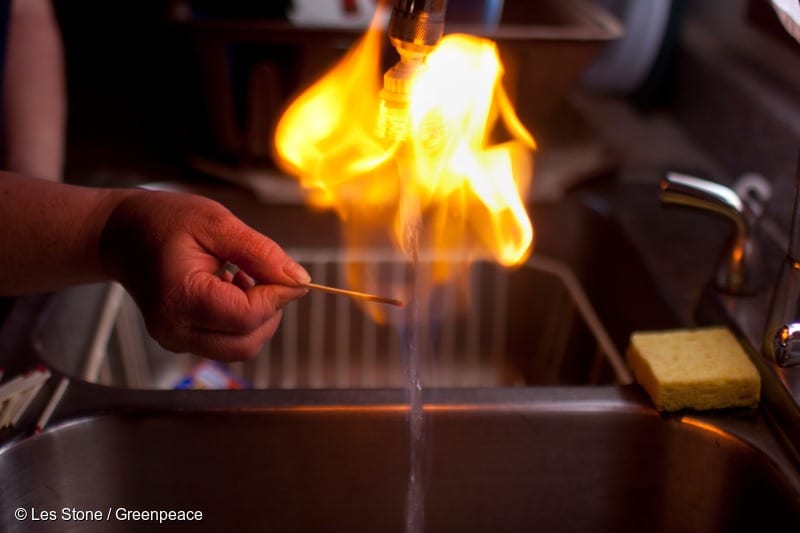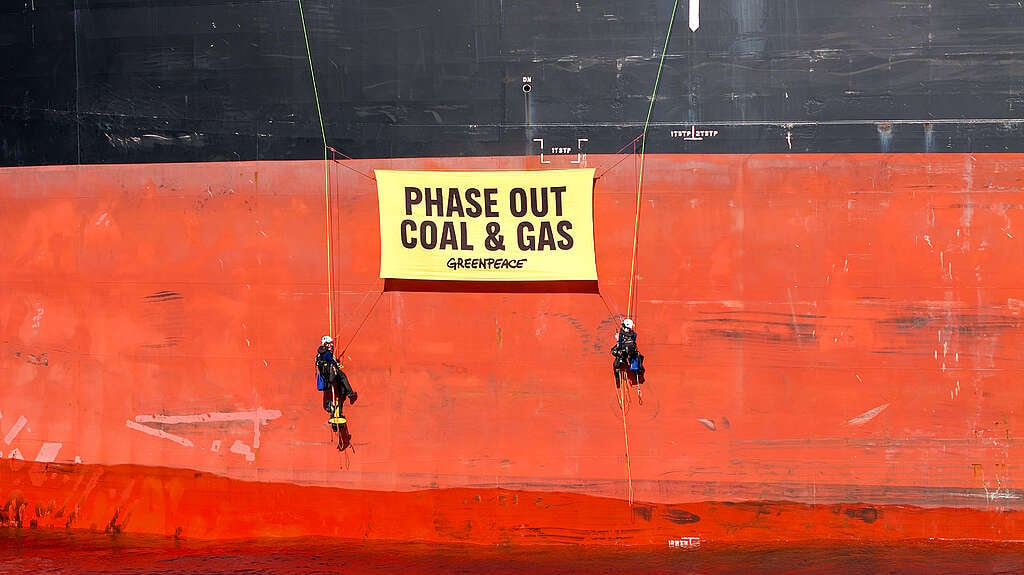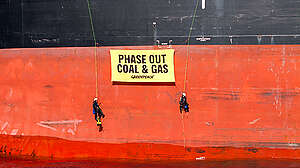Whatever oil and gas companies would have you believe, fossil gas has no useful role to play in the energy transition. In fact it’s dirty, expensive, and unnecessary
Renewables are not only better for the climate, they are cheaper and create more jobs. Pursuing the concept of a ‘gas-led recovery’ would deliver economic as well as environmental ruin.

6 reasons gas is bad for the climate and the economy
- Burning known global oil and gas reserves, even without coal, would make limiting temperature rise to 1.5°C impossible: Burning existing proven and probable gas reserves alone would lead to 173 gigatonnes of greenhouse gas emissions, nearly half of the remaining post-2015 carbon budget for remaining below 1.5°C with 50% probability. In fact to meet the IPCC’s most realistic pathway to 1.5°C would require a reduction of not less than 39% in fossil gas consumption between 2018 and 2030.
- Gas may be as polluting as coal: Taking into account the greenhouse gas emissions associated with extracting, producing, and transporting gas to consumers, scientists are now concluding that across the entire lifecycle gas may be as polluting as coal, if not more: Not only is the process of liquefying and transporting gas energy intensive but the amount of methane, a greenhouse gas 86 times more potent than CO2 in the short term, routinely leaking from gas infrastructure has been severely underestimated.
- Investors are already overexposed to gas: Investing in new gas projects now will either lead to assets becoming stranded as global efforts to curb emissions gain momentum or they will cause climate action to fail, thereby contributing to the increased costs of climate damage. As of 2019 almost $5 trillion USD of investments have already been committed to new oil and gas fields that are incompatible with limiting warming to 1.5°C.
- Renewables are cheaper than gas: Since 2016, gas has been driving up energy prices for Australian households and businesses. According to the CSIRO, Lazard, and Bloomberg’s levelized cost of energy analyses, solar and wind have been the cheapest power generation technologies for new capacities in most major economies for some time and are now even competitive with installed coal.
- Fossil gas is not needed for grid reliability: Storage solutions and demand response technology are becoming competitive with gas peaker plants for balancing electricity grids. AEMO’s most recent draft Integrated System Plan shows no need for significant gas expansion in any scenario. And according to Wood MacKenzie batteries could soon replace all gas peakers. Electrifying transport and buildings is expected to further help meet grid reliability expectations.
- New fossil gas infrastructure would lock in emission increases for decades. Global gas production plans already in train are set to exceed the global carbon budget for 1.5°C by 70%. Approximately half of the existing fossil gas fleet was built after 2000. New fossil gas plants and infrastructure being built are either likely to operate and emit greenhouse gases for decades, shattering the earth’s carbon budget, or become stranded assets.

Sign the petition to demand the Australian Government stop new coal, oil and gas projects now.
Sign petition

